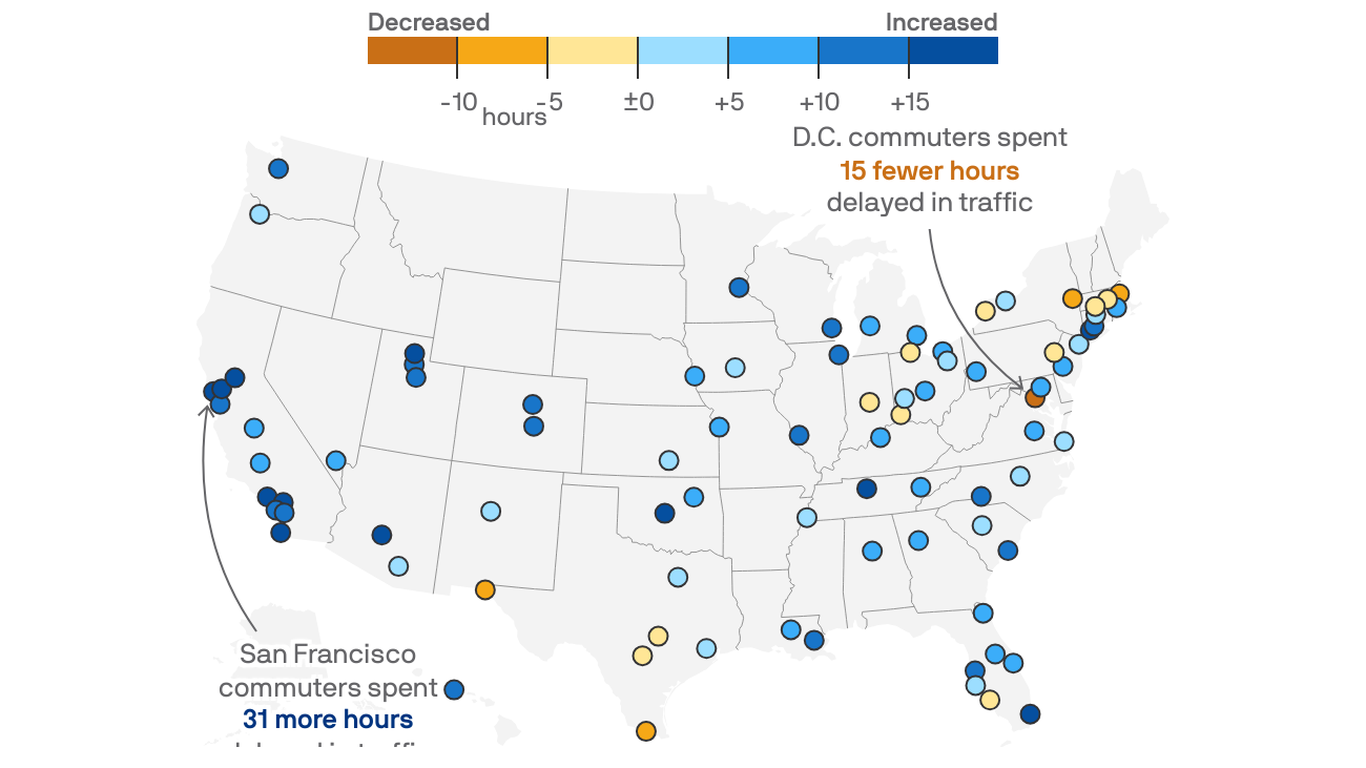
"Traditional rush hours are returning. Yet there's also been a "noticeable rise in midday congestion," the report finds, possibly tied to remote and hybrid work changing people's schedules and travel behaviors. Thursday has overtaken Friday with the highest share of weekly delay - perhaps "because some of the Friday travel is not associated with commuting, whereas Thursday has more of a typical commute pattern.""
"Among metros with at least 500,000 residents, the "yearly delay per auto commuter" grew notably between 2019 and 2024 in cities like San Francisco (+31 hours), San Diego (+24) and Miami (+19). That's "the extra time spent during the year traveling at congested speeds rather than free-flow speeds by private vehicle drivers and passengers who typically travel in the peak periods." Some areas, like Washington, D.C. (15 fewer hours), Boston (-6) and Austin (-4), saw a decrease."
"How it works: The researchers used data from the Federal Highway Administration and INRIX, a transportation analytics firm. What's next: The report lays out several potential solutions based on local needs, including roadway expansions, better public transportation, new traffic-management technologies and more. Cities are experimenting with changes big and small to improve traffic flow, with something as simple as a 10-second streetlight timing tweak making a difference at one Boston intersection, Axios' Steph Solis reports."
Congestion is increasing again in many metropolitan areas after a pandemic-era dip. Traditional peak periods are reappearing while midday congestion has risen, likely influenced by remote and hybrid work shifting travel schedules. Thursday now accounts for the largest share of weekly delay, surpassing Friday, and delivery trucks are adding to traffic problems. Yearly delay per auto commuter rose substantially in several large metros between 2019 and 2024, though some cities recorded decreases. Data sources include the Federal Highway Administration and INRIX. Potential remedies include roadway adjustments, enhanced public transit, and traffic-management technologies.
#traffic-congestion #urban-mobility #remotehybrid-work #traffic-management #freight-and-delivery-impact
Read at Axios
Unable to calculate read time
Collection
[
|
...
]